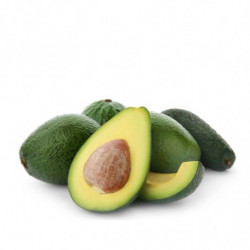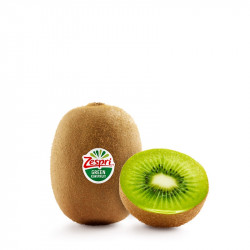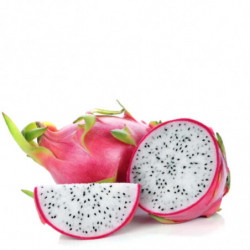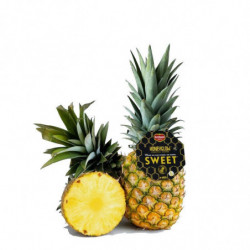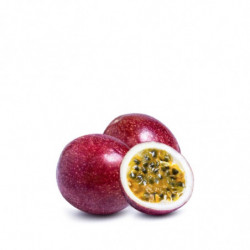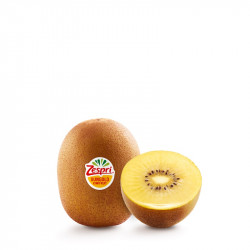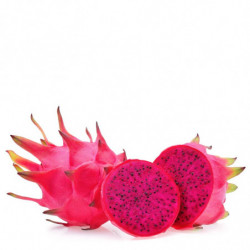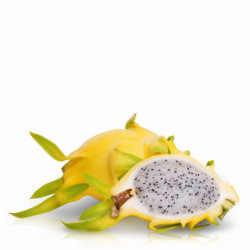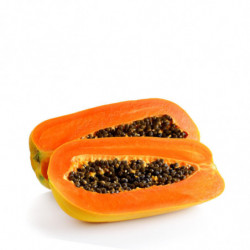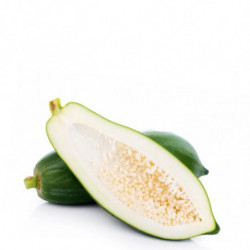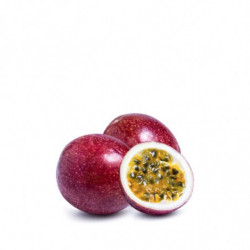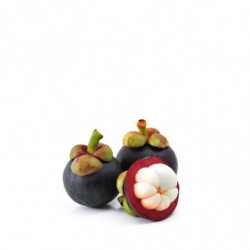Tropical Fruits: A Guide to Exotic Delights
Tropical fruits are nature's colorful, flavorful gifts from warm climates around the world. These fruits not only tantalize our taste buds with their unique flavors but also provide a wealth of essential nutrients. From the creamy texture of avocados to the sweet juiciness of mangoes, tropical fruits offer a diverse range of tastes, textures, and culinary possibilities.
In this comprehensive guide, we'll explore some of the most popular tropical fruits, including mangoes, avocados, pineapples, and kiwis, along with other exotic varieties. We'll delve into their nutritional benefits, culinary uses, and interesting facts that make each fruit unique.
Popular Tropical Fruits
1. Mango: The King of Fruits
Mangoes, often called the "king of fruits," are beloved for their sweet, juicy flesh and vibrant flavor.
- Nutrition: Rich in vitamins A and C, potassium, and antioxidants.
- Uses: Eaten fresh, used in smoothies, salads, desserts, and savory dishes.
- Fun Fact: There are over 1000 varieties of mangoes worldwide.
2. Avocado: The Creamy Superfood
Avocados are known for their creamy texture and nutritional density.
- Nutrition: High in healthy fats, fiber, potassium, and vitamins K, C, and B6.
- Uses: Used in guacamole, salads, sandwiches, and even smoothies.
- Fun Fact: Avocados are actually berries!
3. Pineapple: The Tropical Crown
Pineapples are instantly recognizable by their distinctive shape and sweet-tart flavor.
- Nutrition: Excellent source of vitamin C and manganese, contains bromelain enzyme.
- Uses: Eaten fresh, grilled, used in desserts, cocktails, and savory dishes.
- Fun Fact: It takes about 2-3 years for a pineapple plant to produce a single fruit.
4. Kiwi: The Fuzzy Powerhouse
Kiwis are small fruits packed with big flavor and nutrients.
- Nutrition: High in vitamin C, fiber, potassium, and antioxidants.
- Uses: Eaten fresh, used in fruit salads, smoothies, and as a garnish.
- Fun Fact: Kiwis contain more vitamin C per ounce than oranges.
Did you know? Many fruits we consider "tropical" are native to different parts of the world. For example, mangoes originated in South Asia, avocados in Central America, pineapples in South America, and kiwis in China!
Other Notable Tropical Fruits
While mangoes, avocados, pineapples, and kiwis are among the most well-known tropical fruits, there are many other delicious and nutritious options to explore:
- Papaya: Known for its sweet taste and digestive benefits.
- Passion Fruit: Tart and seedy, often used in desserts and drinks.
- Guava: Aromatic fruit high in vitamin C and fiber.
- Dragon Fruit: Visually striking with a mild, sweet flavor.
- Lychee: Small, white fruit with a floral aroma and sweet taste.
- Coconut: Versatile fruit used for its water, meat, and oil.
- Jackfruit: Large fruit often used as a meat substitute in vegetarian dishes.
Nutritional Comparison
Tropical fruits offer a wide range of nutrients. Here's a comparison of some key nutrients in a 100g serving of our featured fruits:
| Fruit |
Calories |
Vitamin C (mg) |
Potassium (mg) |
Fiber (g) |
| Mango |
60 |
36.4 |
168 |
1.6 |
| Avocado |
160 |
10 |
485 |
6.7 |
| Pineapple |
50 |
47.8 |
109 |
1.4 |
| Kiwi |
61 |
92.7 |
312 |
3 |
Culinary Uses of Tropical Fruits
Tropical fruits are incredibly versatile in the kitchen. Here are some popular culinary uses:
- Fresh Consumption: Most tropical fruits are delicious eaten fresh as a snack or dessert.
- Smoothies and Juices: Tropical fruits make excellent bases for refreshing drinks.
- Salads: Both fruit salads and savory salads benefit from the addition of tropical fruits.
- Desserts: From pies and tarts to ice creams and sorbets, tropical fruits add unique flavors to desserts.
- Savory Dishes: Many tropical fruits pair well with meats and seafood in savory recipes.
- Preserves: Jams, jellies, and chutneys are great ways to preserve tropical fruits.
- Dried Snacks: Many tropical fruits can be dried for a healthy, portable snack.
Health Benefits of Tropical Fruits
Incorporating tropical fruits into your diet can provide numerous health benefits:
- Boost Immune System: Many tropical fruits are high in vitamin C and other antioxidants that support immune function.
- Improve Digestion: The fiber content in these fruits aids digestion and promotes gut health.
- Heart Health: Fruits like avocados provide healthy fats that can improve cholesterol levels.
- Skin Health: The vitamins and antioxidants in tropical fruits can contribute to healthy, glowing skin.
- Hydration: Many tropical fruits have high water content, helping to keep you hydrated.
- Weight Management: The fiber and nutrients in these fruits can help you feel full and satisfied.
<div">
Pro Tip: To get the most nutritional benefit, try to eat a variety of tropical fruits. Each fruit offers a unique nutritional profile, so diversity is key!
Buying and Storing Tropical Fruits
To enjoy tropical fruits at their best, follow these tips for buying and storing:
- Mangoes: Choose fruits that give slightly to pressure. Ripen at room temperature and refrigerate when ripe.
- Avocados: Select fruits that yield to gentle pressure. Ripen at room temperature. Once ripe, they can be refrigerated for a few days.
- Pineapples: Look for a fragrant aroma and leaves that are fresh and green. Store at room temperature if eating within a couple of days, or refrigerate.
- Kiwis: Choose fruits that yield to gentle pressure. Ripen at room temperature and refrigerate when ripe.
Environmental Considerations
While tropical fruits are delicious and nutritious, it's important to consider their environmental impact:
- Transportation: Many tropical fruits are shipped long distances, contributing to carbon emissions.
- Water Usage: Some tropical fruits, like avocados, require significant water resources to grow.
- Deforestation: Increased demand for tropical fruits can lead to deforestation in some areas.
To enjoy tropical fruits more sustainably, consider:
- Choosing locally grown fruits when possible
- Opting for organic or sustainably grown options
- Eating tropical fruits in season
- Reducing food waste by properly storing fruits and using them in various recipes
Conclusion
Tropical fruits offer a world of flavors, textures, and nutritional benefits. From the sweet lusciousness of mangoes to the creamy richness of avocados, the tangy brightness of pineapples, and the zesty punch of kiwis, these fruits add excitement and variety to our diets. By incorporating a range of tropical fruits into your meals, you can enjoy their delicious tastes while reaping their numerous health benefits.
Whether you're a long-time fan of tropical fruits or just beginning to explore these exotic delights, there's always something new to discover in the colorful, flavorful world of tropical fruits. So why not add some tropical flair to your next meal and experience the taste of paradise?



